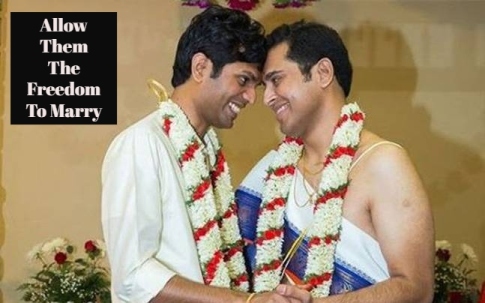

By Sunil Garodia
First publised on 2021-02-26 07:29:28
The Central government is still unwilling to accord legitimacy to the choice of sexual partner, as far as marriage is concerned, by willing adults. In a petition before the Delhi High Court which was hearing a batch of petitions that asked for allowing same-sex marriages, the government made four main points: one, there was no fundamental right to seek recognition for same-sex marriages; two, the family unit, as understood in Indian society, consisted on a biological man and a woman and their children; three, the Supreme Court order decriminalizing homosexuality did not legitimize it and four, that it is for the legislature to enact a law on the subject, if needed.
While these arguments may be logically correct, they are regressive in the sense that laws need to evolve with time as social mores also change. The LGBT community is growing and is getting accepted in society. It is increasingly, and rightly, being recognized that alternate sexual behavior is not a disease that can be cured. It is a biological demand of the body that need fulfillment from a similarly inclined person. Heterosexual behavior is not the only way the human body fulfils its sexual needs. To force a homosexual individual into a heterosexual marriage is to spoil two lives. As far as the family unit is concerned, if couples in a same-sex marriage feel the need for children, the adoption route (with necessary changes in law) should be made available to them.
The government should legitimize same-sex marriages by enacting a law for the same. All fundamental rights could not have been incorporated in the Constitution when it was drafted and adopted. Rights should be recognized and granted as and when the need arises. We need to ensure that the sexual minority is not hounded, shamed or ostracized for something over which they have no control. They are made that way and it will be better for society to accept them the way they are instead of imposing its own set of outdated and regressive rules by hiding behind notions of age-old customs, rituals, values, mores and acceptable behavior.











